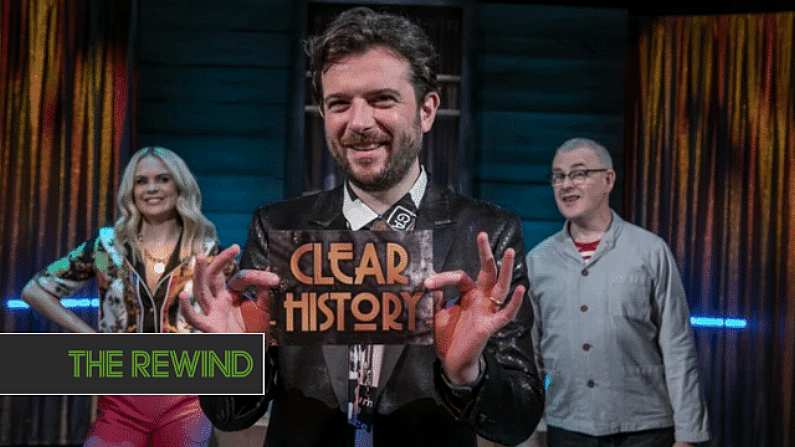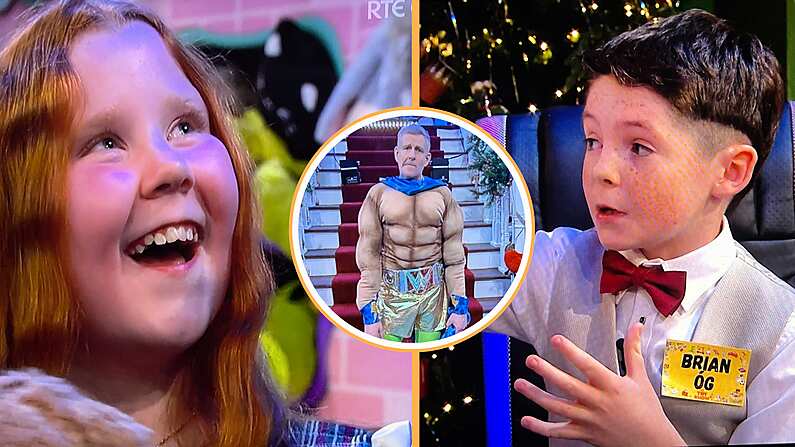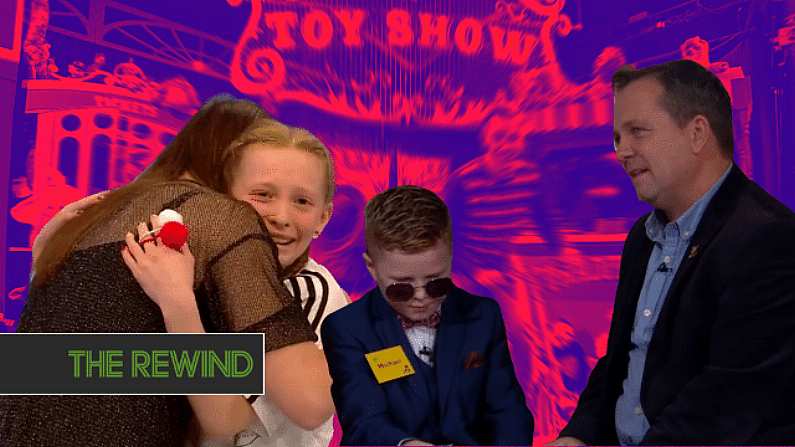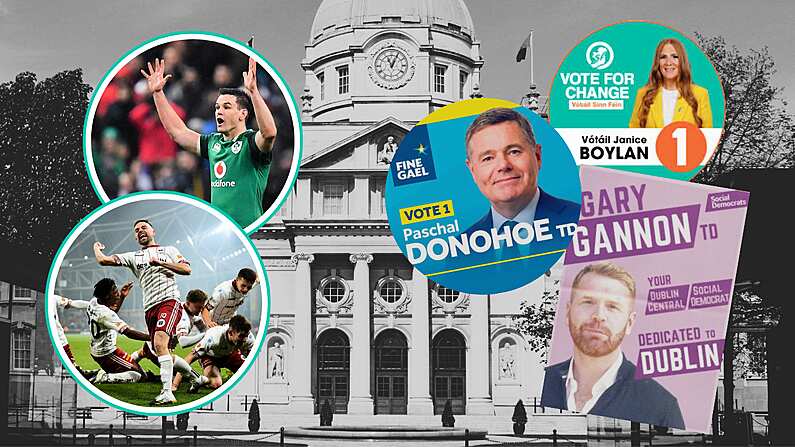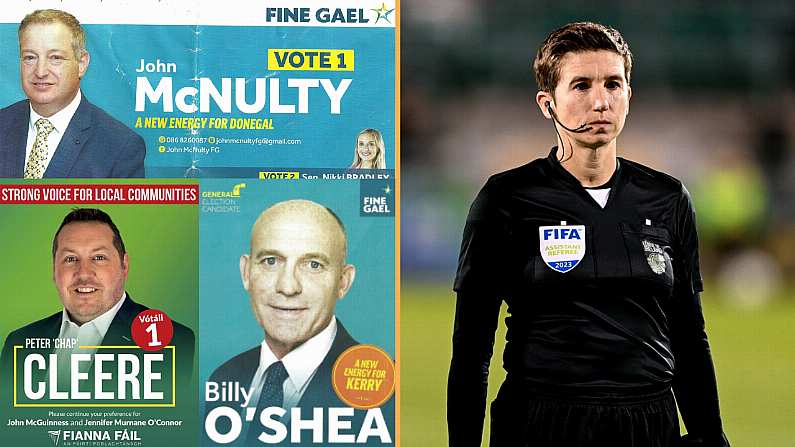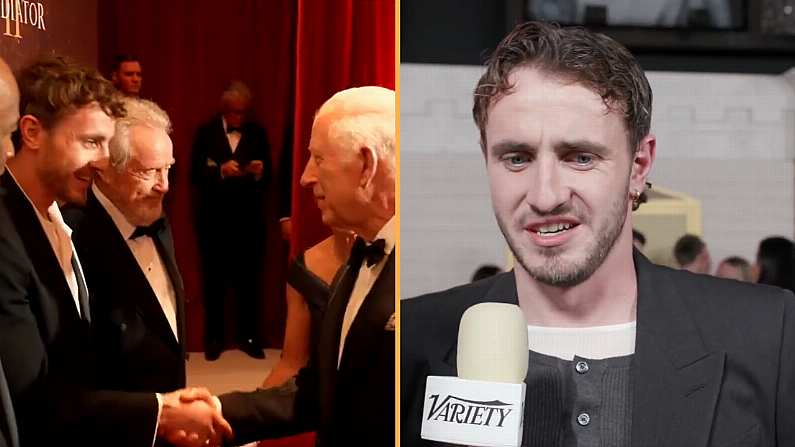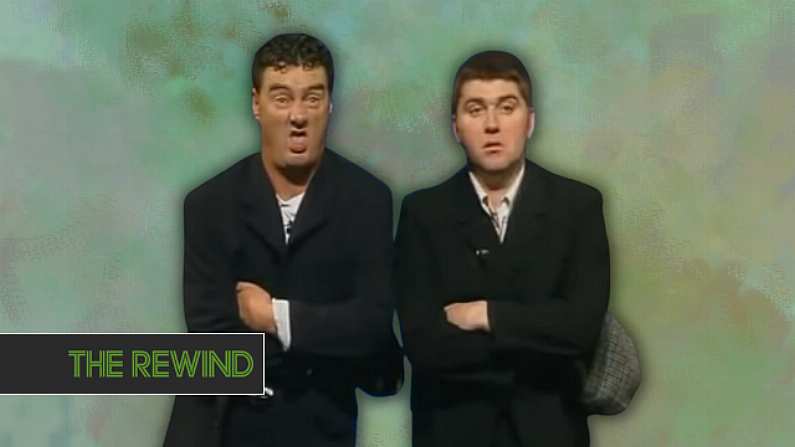One of the advantages of living in Ireland compared to other countries in the EU is that the average Irish person is much funnier than his or her counterpart in Austria or Portugal. It's difficult to quantify humour, but few people who've lived in Essen or Strausbourg would debate the point. Yet, mysteriously, Ireland's superior funnyness is not reflected on Irish television.
Sometimes you'd wonder if there were arcane employment rules that prevent professional funny people, otherwise known as comedians, from being on Irish television.
Take the concept of the panel show. This is one of the most tried and trusted ways to get professional funny people on TV. RTÉ once had a successful panel show called The Panel. It may not have always been perfect television, but The Panel was often pretty funny. For many of us, it was first introduction to the comedic talents of Dara Ó Briain, Ed Byrne and Andrew Maxwell.
In 2011, after an eight year run, The Panel was cancelled, spawning one of the great Irish entertainment tweets.
I've just been told RTE has cancelled The Panel.
By my brother.
Cheers.— Andrew Maxwell (@andrewismaxwell) June 4, 2011
Strangely, nothing ever succeeded it.
The lack of Irish panel programmes doesn't really add up. They're relatively cheap to make. UK television has provided a template for what works. Ireland is brimming with comedic talent. So where are all our panel shows?
Perhaps the concept just needed a reboot. The first episode of RTÉ's newest comedic panel series Clear History airs tonight. It's presented by Kevin McGahern, and features Joanne McNally and Panel veteran Colin Murphy as regulars with two rotating panelists. The show is based around people sharing humiliating stories, and its arrival could not be more welcome here in darkest January.
Balls.ie caught up with McGahern on Tuesday to discuss the making of Clear History, the rise of shame and making comedy in covid times.
Balls: Congratulations on the programme. We could all use a comedy show right now.
Well, it's great to see panel shows back. It's so long since 'The Panel' and the media landscape is so different from when 'The Panel' was on. Like I only found out recently 'The Panel' was live. 'The Panel' went out live. Can you imagine something like that, where you allowed four or five comedians to say whatever they want, on national television, with no consequences whatsoever? It's kind of insane.
Balls: How is Clear History different to other shows like it?
KMc: Our show is definitely a very Irish approach to a panel show. The English panel shows are very joke-heavy. You can almost see them reading their homework underneath the tables. This is one is essentially storytelling. Irish people are better at storytelling than we are telling jokes and one-liners.
Balls: Panel shows seem like a great way to get Irish comedians on tv.
KMc: I know. In the last 3 or 4 years, we've seen amazing funny people come up like Darren Conway, Tony Cantwell, Shane Clifford and Justine Stafford, and they're not on the telly. We need to get them on TV before they go to England.
Balls: Did you rehearse a lot for this?
KMc: It's not something you can rehearse. It's all conversations, it's all stories. It's not like an English chat show where you get the topics ahead of time, and you have time to come up with funny retorts. It's more relaxed and conversational. It's not something you can really plan.
Balls: The show itself sound like confession or group therapy. Is there a release in telling shameful stories?
KMc: It's stories you wish you could wipe from history. Stories that keep you awake at night, that you wish didn't happen. Once you tell the story, I find it cuts the embarrassment in two. Once you get a laugh from an story, it kind of makes the embarrassment worth it. If you hide a story, it eats you up inside for years. But if you tell it three friends and you get a laugh, boom, you're the laugh of the party!
Shame seems to be really in right now. I've seen a lot of things that are in a similar vein and I don't think there's copying going on. Shame is in. People seem to be confessing and telling embarrassing stories a lot. Maybe it's something to do with the fact that we're all locked inside and we have to mine our own lives for entertainment.
Balls: There's no audience because of covid restrictions: how did that change the show?
KMc: It did make it more intimate, because people aren't playing to the crowd. They're not playing for a laugh. It made it a lot more like a pub.
Balls: How has Irish comedy coped with the pandemic?
KMc: I see it as an incubation period, as a fallow year. Every now and again, you have to let the field regrow. When comedy comes back, it will come back stronger than ever. It's given us all a deeper appreciation for live performance and the shared joy of experiencing something with a huge crowd of people.'
Balls: Joanne McNally is one of the rising stars in Irish comedy. What was it like working with her on this?
She's amazing. I think going to England really solidified her. It's like training for triathlon. You're gigging five nights a week. And she has some real doozies in this. I really like the combination of her and Colin. Colin's a joke machine, Joanne's a story machine and they complement each other really, really well.
Epidemiologist Luke O'Neill and comedian Laura O'Mahony feature in Episode 1, which airs tonight. McGahern says the episode featuring Senator Lynn Ruane is especially good. The show airs on Thursday nights on RTÉ2 at 9.30pm, which tells you that RTÉ are endorsing the show.

